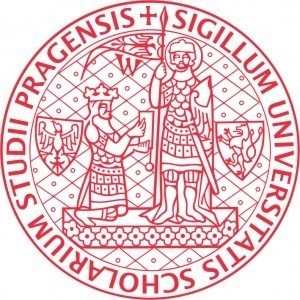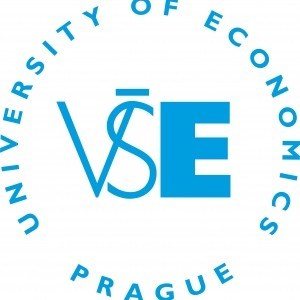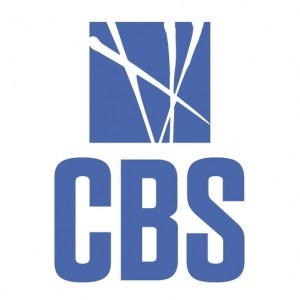Photos of university / #_charles.university_
Economics and Finance at Charles University offers a comprehensive and rigorous curriculum designed to develop a deep understanding of economic theories, financial models, and analytical methods. This Bachelor's program provides students with fundamental knowledge of microeconomics, macroeconomics, financial markets, banking systems, and international economics. The program emphasizes both theoretical foundations and practical applications, preparing graduates for careers in finance, consultancy, government, or for further academic pursuits.
Students will engage with a wide range of topics, including economic policy, investment analysis, risk management, corporate finance, and economic development. The curriculum incorporates state-of-the-art quantitative methods, such as statistics, econometrics, and data analysis, enabling students to critically evaluate financial data and economic phenomena. Additionally, coursework involves case studies, project work, and internships to foster practical skills and real-world understanding.
The program is taught by experienced faculty members who are active researchers and practitioners in their fields, ensuring that students receive up-to-date insights and rigorous academic training. Students also have access to modern facilities, extensive library resources, and networking opportunities with industry professionals.
Graduates of the Economics and Finance program will possess excellent analytical, problem-solving, and communication skills, equipping them for diverse roles in financial institutions, governmental agencies, international organizations, or entrepreneurial ventures. The degree also provides a solid foundation for those wishing to pursue master's or doctoral studies in economics, finance, or related disciplines. With its strong theoretical core combined with practical relevance, this program aims to prepare well-rounded professionals capable of contributing to economic development and financial stability in a globalized economy.
The MEF programme consists of 120 ECTS credits (a typical course corresponds to 4–6 credits). The courses are consist of the core courses (33 ECTS credits), the field elective courses (67 ECTS credits), the off-field elective courses (12 ECTS credits), and two Master’s Thesis seminars (9 ECTS credits). The core and field elective courses are taught at the Institute of Economic Studies (IES), the off-field elective courses can be taken at any department of Charles University. The courses are taught both by IES faculty and by external professionals from the central bank, the commercial banks, and from the investment and consulting companies.
Core courses
Compulsory core courses introduce the students to the advanced topics in macroeconomics, microeconomics and econometrics as well as to two major fields in finance, namely financial markets and banking. The core courses are intended to give a broad overview of the major topics in economics and finance, and to provide a solid background for further studies of specialized elective courses. In total, the core courses give 33 ECTS credits.
- Advanced Microeconomics (6 credits, 1 lecture & 1 seminar/week)
- Advanced Macroeconomics (9 credits, 1 lecture & 2 seminars/week)
- Advanced conometrics (6 credits, 1 lecture & 1 seminar/week)
- Financial Markets (6 credits, 1 lecture & 1 seminar/week)
- Banking (6 credits, 1 lecture & 1 seminar/week)
Field elective courses
Field elective courses cover a wide range of specific areas in economics and finance, which allows the students to specialize in the field of their interest. The topics include advanced economic theory (e.g. business cycles theory, economic dynamics, game theory), applied economics and economic policy (e.g. monetary economics, international macroeconomics, antitrust economics, health economics, environmental economics, development economics), theoretical finance (e.g. quantitative finance), and applied finance and investment (corporate finance, portfolio analysis and risk management, international finance, insurance, company valuation, real estate investment). We also offer courses in complementary areas (e.g. strategic management, corporate governance, law and regulation). Students are required to collect at least 67 ECTS credits for elective courses.
Off-field elective courses
Off-field elective courses can be taken at any department of Charles University or at any partner university. Students may take 12 ECTS credits outside of the Institute of Economic Studies. These credits can also be used to follow the Czech language classes offered by the Faculty of Social Sciences.
- Completed application form
- Copies of diplomas and transcripts of records,
- Short academic curriculum vitae (resume) detailing all relevant qualifications and experience
- Letter of motivation
- All applications for Master in Economics and Finance (MEF) must also include a letter of recommendation and test results or certificates in order to demonstrate applicants' sufficient competence in mathematics and in English.
- All students who are non-native English speakers must provide evidence of their competence in English corresponding to at least the C1 level, CAE, IELTS 7.0 and TOEFL over 95.
Program Title: Economics and Finance at Charles University
Financing for the Economics and Finance program at Charles University is structured to provide students with a range of options including university scholarships, government grants, and student loans. The program is primarily funded through the university's own resources, supported by the Czech Ministry of Education, Youth and Sports. Students from the Czech Republic and the European Union benefit from different financial aid opportunities, which are designed to reduce the financial burden of higher education and ensure accessibility for a diverse student body.
Tuition fees for international students vary, but for students from the EU and EFTA countries, the program often offers tuition-free education or significantly reduced fees, in line with the university's policy to promote international cooperation. Non-EU students may pay tuition fees, though these are competitive relative to global standards and are used to support the quality of education and campus facilities. The university also manages a variety of scholarship programs based on academic excellence, financial need, or specific criteria such as regional representation and social background.
Students are encouraged to seek additional funding through external sources such as governmental scholarships for study abroad, Erasmus+ exchanges, or private foundations. The university provides comprehensive guidance on the application process for these financial options, helping students to plan and secure the necessary resources for their studies.
In addition to scholarships, students can explore student loan options, where available, through Czech financial institutions or international lenders offering favorable terms for university students. The university also promotes part-time work opportunities on and around campus, allowing students to supplement their income while gaining practical experience in economics and finance.
The cost of living in Prague, where Charles University is based, is relatively moderate compared to other major European cities, but students should budget for accommodation, transportation, books, and daily expenses. The university’s financial aid office provides detailed information about estimated costs and available financial support, enabling students to make informed budget plans.
Overall, the financing structure of the Economics and Finance program at Charles University reflects its commitment to accessible, high-quality education. The combination of internal support mechanisms, external scholarships, and student employment options ensures that students can focus on their academic and professional development without undue financial stress. The university continuously seeks to expand its financial support offerings to accommodate the evolving needs of its student community and to uphold its mission of fostering educated, capable graduates in the fields of economics and finance.
The Economics and Finance programme at Charles University offers students a comprehensive education in the core areas of economics, finance, and related disciplines. Designed to prepare graduates for careers in financial institutions, consultancy firms, governmental agencies, and international organizations, the programme combines theoretical foundations with practical skills. Students gain a deep understanding of economic principles, financial markets, and quantitative methods, equipping them with the ability to analyze economic data, evaluate financial risks, and develop sound economic policies. The curriculum includes courses in macroeconomics, microeconomics, financial accounting, investment analysis, monetary theory, and econometrics. Emphasis is placed on experiential learning through case studies, workshops, and internship opportunities, enabling students to apply their knowledge in real-world contexts. The programme also fosters critical thinking, problem-solving, and communication skills, essential for a successful career in the dynamic fields of economics and finance. Faculty members are renowned experts in their fields, often involved in research projects that inform their teaching. The programme is accredited by relevant Czech and European educational authorities and often collaborates with international universities, facilitating student exchanges and joint research initiatives. Graduates from the programme can pursue further studies at the master's or doctoral levels or enter the workforce directly in various sectors like banking, investment firms, government policy departments, or international financial organizations. The programme is offered in English, attracting international students and providing a global perspective on economic and financial issues. State-of-the-art facilities, extensive resource libraries, and strong ties with the professional community support students throughout their academic journey. Overall, the Economics and Finance programme at Charles University offers a rigorous academic environment combined with practical training, preparing students for successful careers in the rapidly evolving global economy.










